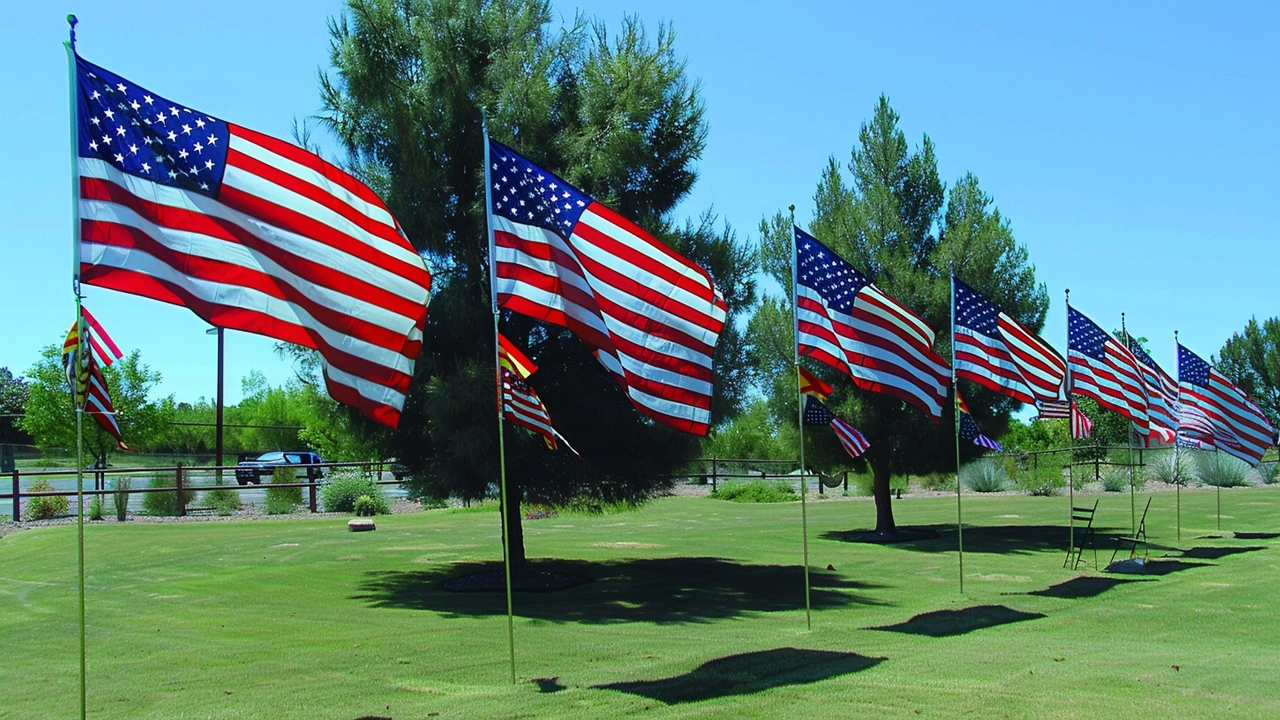
Honoring Memorial Day: A Personal and National Reflection
As we approach Memorial Day, a solemn yet significant day in the United States, it offers an opportune moment to delve into the tapestry of personal and national remembrance. Memorial Day, held on the last Monday of May every year, serves as a poignant reminder of the sacrifices made by those who have laid down their lives in service to the nation. It’s a day that carries enormous emotional weight for many, especially those with direct ties to the military. John Amble, a military intelligence officer in the U.S. Army Reserve and a veteran of the Iraq and Afghanistan wars, provides us with a window into his own reflections of this deeply meaningful day.
A Personal Reflection of Sacrifice
For John Amble, Memorial Day is not merely a day on the calendar but a deeply personal commemoration. As someone who has served and continues to serve, the memories of colleagues who have made the ultimate sacrifice are ever-present. John vividly recalls the somber moment he learned about the first person from his Officer Candidate School (OCS) platoon who was killed in action. This painful memory is a stark reminder of the real human cost of conflict. Such moments punctuate the lives of servicemembers and veterans alike, etching into their minds the true meaning of Memorial Day.
The hero flights carrying fallen servicemembers back to their homeland are equally poignant for John. These flights, silent testaments to loss, evoke a mixture of pride and sorrow. The sight of caskets draped in the American flag is a visual reminder of the bravery and sacrifice of the nation’s military personnel. For John, and many others like him, these flights are a solemn reminder of the price of freedom, and the emotional weight carried by the families left behind.
John also speaks of the bracelets worn to honor fallen friends. These simple tokens serve as daily reminders of those who have given everything for their country. For many servicemembers, these bracelets are not just accessories; they are symbols of enduring friendship and respect. Through these tangible remembrances, the legacy of fallen comrades continues to live on.
Different Ways to Commemorate
Memorial Day, however, is not experienced in a monolithic way. John emphasizes that it’s a day that belongs to everyone, regardless of their connection to the military. Some may attend formal memorial services, with the echoes of ‘Taps’ and the sight of wreaths laid in honor of the fallen invoking deep reflection. Others might visit cemeteries to pay their respects at the graves of those who have served. These acts of remembrance are not solely for those who have lost someone directly; they are a communal act of respect and gratitude.
For others, the day may be marked more quietly. Amidst family gatherings and barbecues, a moment of silence or a shared story can serve as a powerful tribute. John suggests that Memorial Day’s strength lies in its flexibility; it allows individuals to engage with the day in a manner that feels most authentic and meaningful to them. There is no prescribed way to honor the fallen, only a shared imperative to remember.
A Canvas for Reflection
Importantly, Memorial Day serves as a blank canvas. John hopes that individuals take the time to reflect, whether that reflection happens amidst the clamor of a busy day or in the quiet solitude of a personal moment. In sharing stories from his own experiences, he underscores the importance of keeping the memories of fallen servicemembers alive. He encourages readers to participate in this collective act of remembering, stressing that each person’s way of commemorating Memorial Day adds to the broader narrative of national remembrance.
Ultimately, Memorial Day resonates on two levels: as a national day of honor and as a collection of individual stories and memories. Each act of remembrance, whether grand or simple, contributes to the day’s significance. By acknowledging and embracing these diverse ways of honoring the fallen, we can collectively ensure that the sacrifices of those who have served are never forgotten.
The Significance of Remembering
John concludes with a powerful reminder of the importance of Memorial Day. This isn’t just a historical remembrance but a moral duty to honor the men and women who have died in service to the country. By dedicating even a small part of their day to reflection, Americans can ensure that the spirit of sacrifice and bravery remains at the forefront of the national consciousness. Memorial Day is a time to pause, reflect, and remember—an opportunity to honor the past while acknowledging the ongoing contributions of those who serve today.
In marking Memorial Day this year, whether through shared stories, personal reflection, or community participation, let us remember the lives and legacies of those who have given their all. Through our collective remembrance, we can ensure that their sacrifices are forever etched in the annals of our nation’s history.